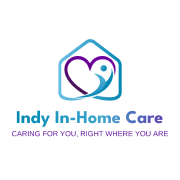The demand for quality family care has never been stronger as Indiana’s population ages and more people suffer from chronic illnesses or disabilities. Daily care, emotional support, and medical aid to loved ones who might otherwise need nursing home care or long-term care facility placement depend critically on family carers. The Indiana Family Caregivers Program and related projects provide necessary tools, financial aid, and organized support to enable carers to balance their obligations with their well-being.

Overview of Family Caregiving
Family caregiving is the unpaid or paid help given to someone unable to do necessary daily activities due to age, disease, or disability by family members, friends, or legal guardians. Carers might include ageing parents, disabled adult children, or someone recuperating from serious illness.
Definition and Role of Family Caregivers
Among the many personal care tasks family caregivers help with are bathing, dressing, cooking meals, managing medications, and mobility support. They might also handle housework, schedule doctor’s visits, and offer emotional support. These responsibilities are becoming more and more important in Indiana as part of the healthcare ecosystem.
Importance of Family Caregiving
By lowering the demand for institutional care services, Family caregivers enable the recipients of care to stay in familiar surroundings. For those with impairments, this improves their quality of life and helps government initiatives to save money. Nursing homes and long-term care institutions would bear far more load without family carers.
Financial Assistance Options for Caregivers in Indiana

Giving care can cause major financial difficulties, especially if caregivers have to cut work hours or quit jobs. Fortunately, Indiana’s various government initiatives offer financial help as well—direct carer remuneration and stipends, among other things.
Structured Family Caregiving with Medicaid
Structured Family Caregiving (SFC), a program available to qualified caregivers through Indiana Medicaid, lets them get tax-free daily compensation for their caregiving efforts. The care receiver has to be registered in the Aged and Disabled Waiver and demand a nursing facility level of treatment to qualify. Living with the care recipient and assisting with daily living tasks, including toileting, grooming, and feeding, qualifies caregivers.
Aged and Disabled Waiver Overview
The Aged and Disabled Medicaid Waiver lets people get long-term care services in a home environment instead of an institutional one. Services range from food preparation to attendant care to respite care to assistive technology. Through access to a network of community-based resources, this waiver helps carers as well as care receivers.
Veterans’ Aid and Attendance Pension
Through the Department of Veterans Affairs, veterans and their spouses can be qualified for the Aid and Attendance benefit. In-home care, assisted housing, or even pay to family caregivers can all be covered by this financial reimbursement. Eligible caregivers must assist veterans with medical problems and daily tasks.
Deductions from Taxes for Caregivers
Federal tax benefits such as deductions for medical expenses or the Child and Dependent Care Credit may also help carers. Particularly for those managing significant caregiving obligations, these tax benefits might help to reduce the financial load of caring.
State-funded financial projects
Through initiatives like the Caregiver Support Program and the Caregiver Support Line—which link caregivers with respite care, caregiver training, and supporting services— Indiana also offers financial aid. These programs seek to lower caregiver burnout and enhance the general quality of living for those in care.
Structured Programs for Family Caregivers

Structured caregiving programs provide defined services and pay to caregivers, therefore enhancing the quality of life for those with impairments or chronic diseases.
Comprehensive Assistance Program for Family Caregivers (PCAFC)
Under management by VA, PCAFC offers family caregivers of qualified veterans monthly stipends, caregiver training, health coverage, and respite care. For primary caregivers managing heavy caring duties, this program is perfect.
Program Designed by Veterans Directing Care
Through the Veteran-Directed Care Program, qualified veterans can oversee their long-term services—including family caregiver hiring. This consumer-directed care approach gives more freedom and autonomy for the delivery of treatment.
Employer-sponsored alternatives

Through care benefits and leave rules, employers also help caregiving employees.
Overview of Family Leave Policies
Under the Family Medical absence Act ( FMLA), qualified workers may take unpaid, up to 12-week absence to care for a family member suffering a major medical illness. A few Indiana companies also provide flexible schedules or paid carer leaves.
Advantages and drawbacks of employer-sponsored care plans
These plans usually lack direct financial remuneration even when they offer necessary time off. Using parental leave benefits calls for employees to weigh the trade-offs between work stability and income loss.
Direct Family Compensation Strategies
Indiana provides models for family caregivers seeking direct financial support that let them get paid.
Steps to Attain Paid Caregiver Status
Those wishing to be paid carers in Indiana must qualify under Medicaid Waiver Programs such as the Aged and Disabled Waiver. The beneficiary of the care has to be an eligible person with the necessary degree of care requirements. Many times, caregivers work with attendant care companies like Indy In-Home Care and complete professional training.
Navigating Legal Systems for Just Payback
To be sure they follow all work laws, legal guardians or caregivers should speak with experts. Knowing laws on carer compensation, taxes, and contracts guarantees equitable and open caregiving relationships.
Support Tools for Family Caregivers
From respite programs to Caregiver coaching, Indiana provides a broad spectrum of services to those looking after others.
Services for Counselling and Support
Mental health counselling, support groups, and Caregiver support coordinators who assist in stress management and burn avoidance help Caregivers.
Training and Learning Possibilities
There are formal training courses and instructional materials available to assist in the improvement of caregiving abilities and knowledge of the complexity of daily living demands and long-term care.
Pay Rates and Legal Considerations

Knowing compensation guidelines enables carers to fight for legal protection and reasonable pay.
Standard Pay Rates for Services Rendering Care
Indiana’s pay rates for caring services differ depending on the degree of tasks and care required. Medicaid rules and the care plan developed by the provider agency decide the daily or hourly rate.
Comprehending Employment Laws and Rights
Under labour regulations, carers should be aware of their rights including minimum wage, overtime pay, and employee classification. Formal agreements assist to specify roles, obligations, and pay for care.
Challenges and Solutions in Family Caregiving
Family caregivers face emotional, financial, and physical challenges. Supportive services, financial compensation, and community-based programs can help caregivers manage these burdens. Respite care and assistive daily living services provide temporary relief, allowing caregivers to rest and recover.
Conclusion: Navigating the Indiana Family Caregiver Program with Confidence
The Indiana Family Caregiver Program provides a comprehensive network of support for caregivers navigating the complicated tasks of care. From structured family caregiving and Medicaid waivers to veteran benefits and tax credits, Indiana offers a variety of ways to ensure caregivers are recognized, supported, and fairly compensated.
If you are a carer looking for direction, think about consulting experts such as Indy In-Home Care, who can assist you to grasp your choices and link you with the required resources. With the correct knowledge and support, you can offer exceptional care while maintaining your health and well-being.
